Suncream and Storytelling: My LiA Experience

Going in blind. That's exactly how I felt standing outside the arrivals hall of Kotoka Airport in Ghana, desperately scanning the crowd for a sign with my name on it. When I signed-up for 4 weeks of teaching in a rural community in Ghana I had prepped as best I could, researching local customs, learning children’s folklore and packing way too much suncream. But standing there, suitcase in hand in the hot and heavy African night I realised I had to go into this blind, no expectations, just an open mind and an open heart. What I didn’t know then was just how deeply this experience would shape my understanding of education, leadership, and connection and that the learning wouldn’t stop when I boarded the flight home.
On paper I had these clear and tangible goals to meet during my time in Abetifi, a mission, so to speak. I learned quickly that flexibility and adaptability were necessary if I wanted to have the meaningful impact I'd hoped for.
I was warmly welcomed into the school community by both the diligent teachers and the wonderful children. From the outset it became clear just how different their learning environment was to anything I’d known, with classes topping 40 children, limited textbooks and other classroom supplies. One of the biggest struggles I had to overcome was adjusting my expectations, I couldn’t rely on printouts, digital tools and often I had to improvise lessons on the spot. However, the children’s curiosity and wonder, especially toward me and any knowledge I could share about where I came from, were contagious. I soon realised that simplicity was the best way forward. I taught lessons on topics I found exciting and that they might not normally get to explore, like volcanoes. The story of Pompeii absolutely blew their minds. I managed to find a couple of videos of volcanic eruptions on YouTube, and their faces lit up in awe. It was one of those rare teaching moments where total engagement filled the room, and I felt the power of learning shared across cultures.
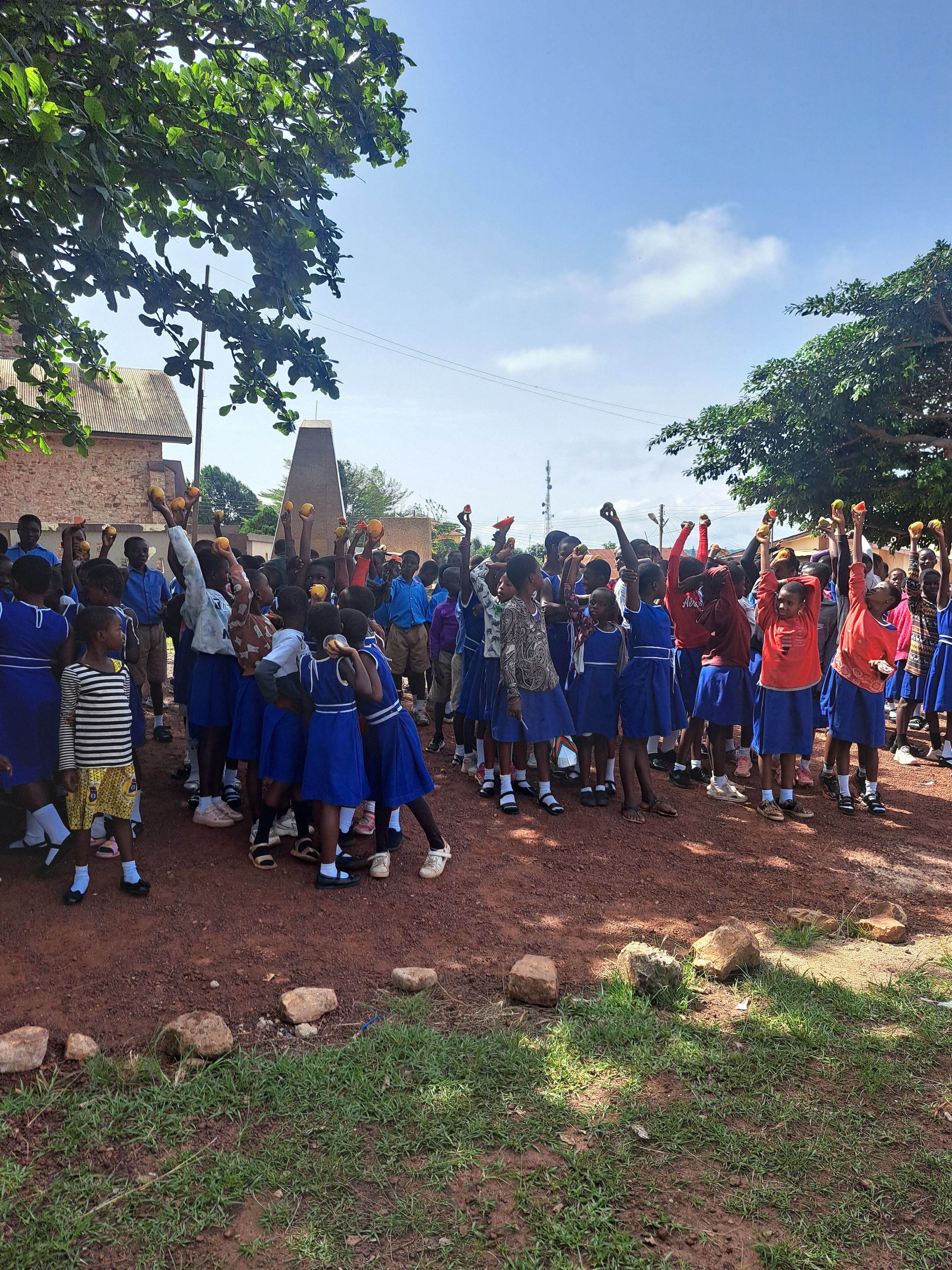
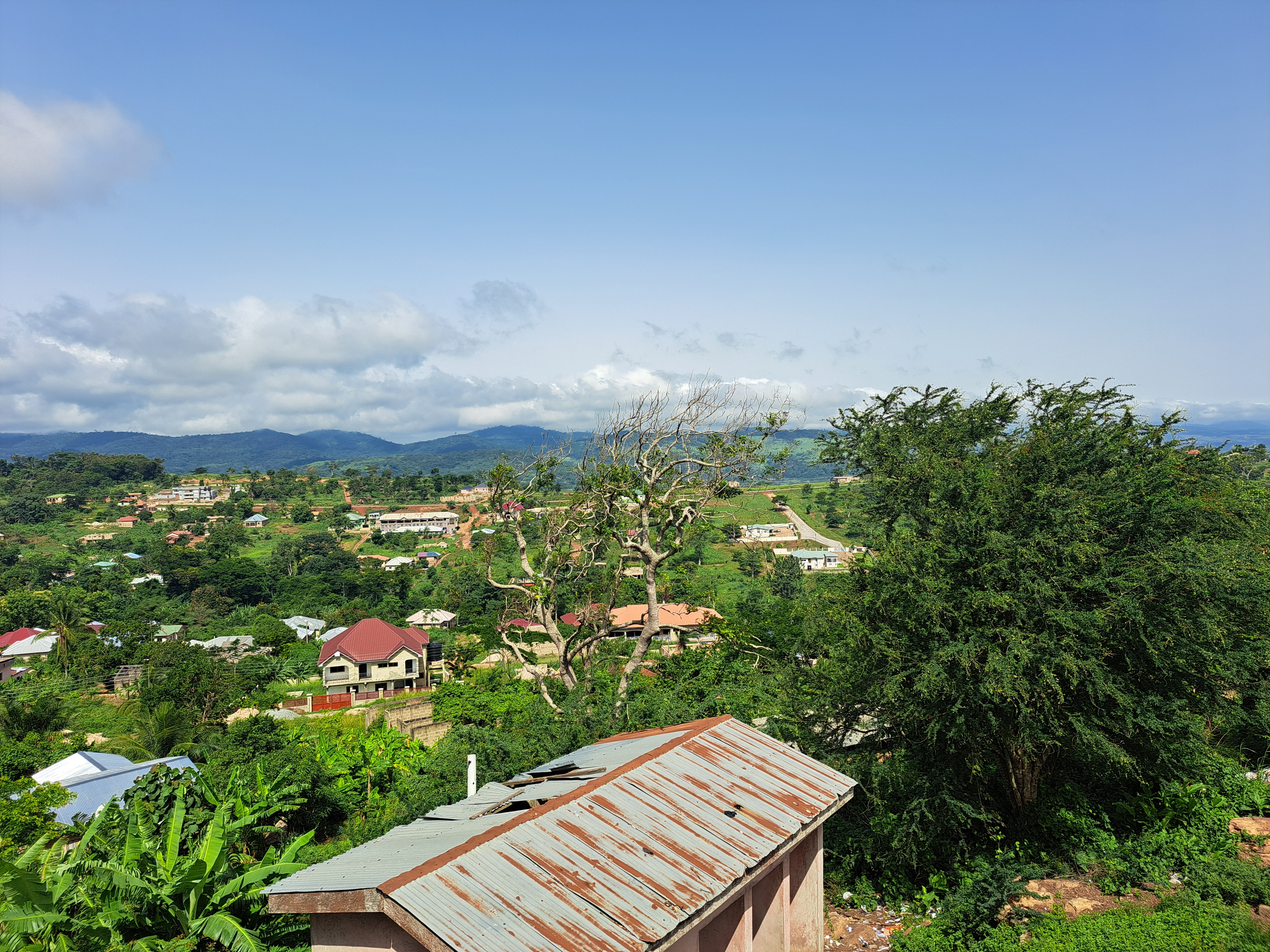
Through this experience, I began to see leadership not as having all the answers, but as being willing to listen, adapt, and support others in whatever way they need. My time there helped me understand how access to education, especially in under-resourced communities, is not just about buildings or materials, but about people showing up and making space for learning. Atlas Volunteers, the organization I was fortunate enough to work with, have integrated this ideology into every aspect of each of their outreach programmes. This aligns deeply with the goals of UNSDG 4, which calls for inclusive and equitable quality education for all.
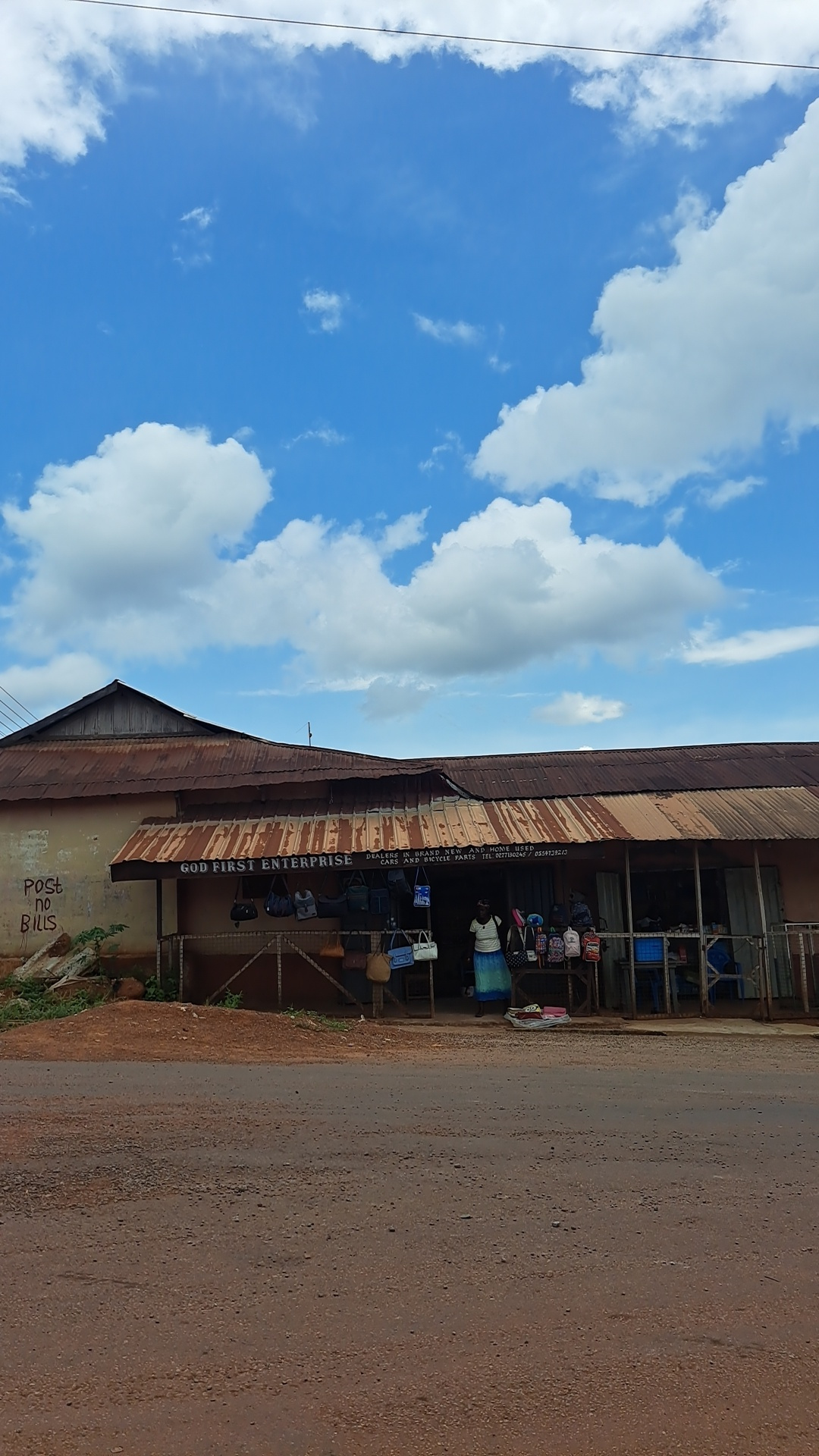
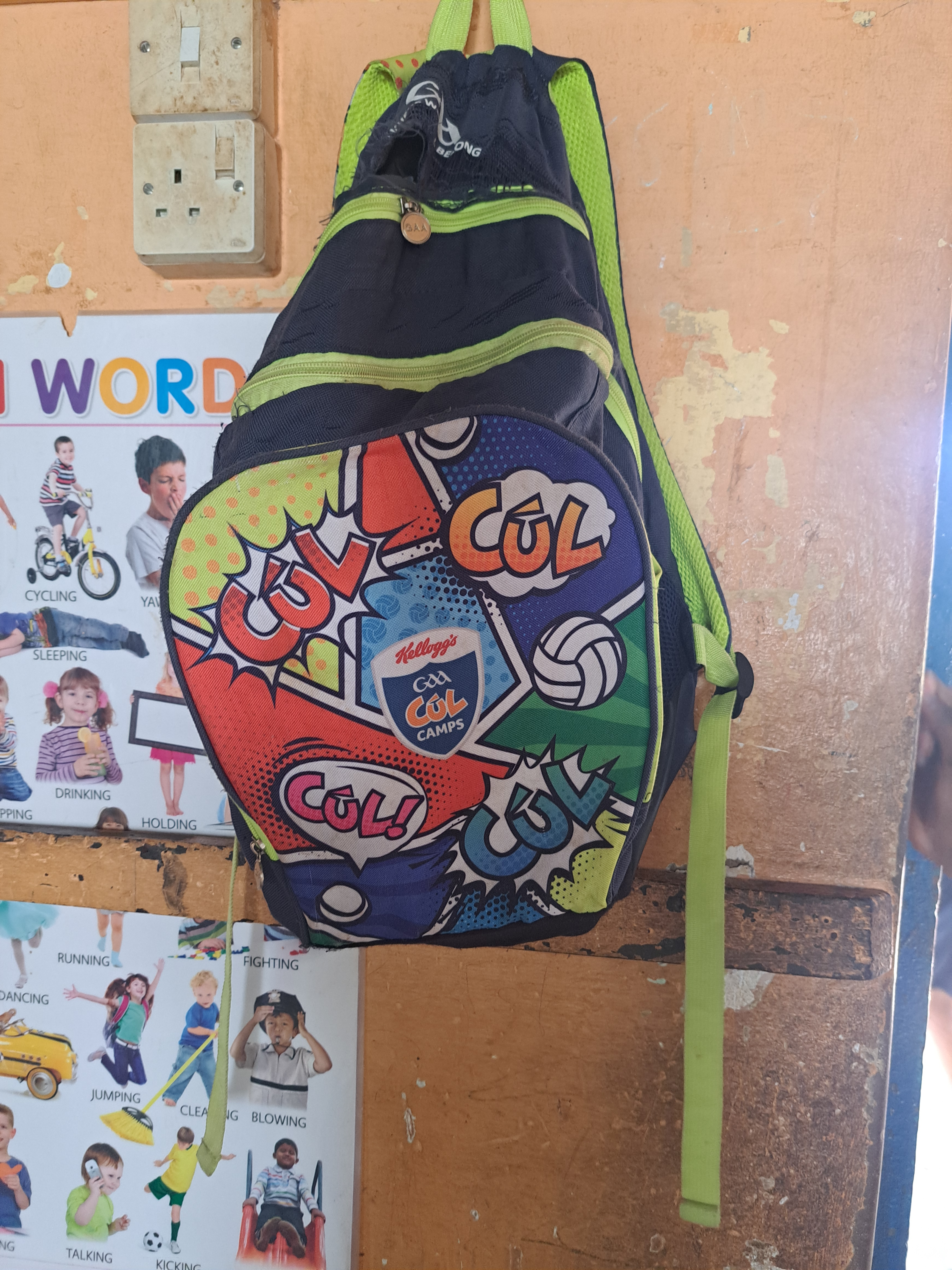
From the outset, I knew I wanted to do part of my LiA in Ireland. I strongly believe that before seeking to change and help others, we must first look inwards and begin at home. In recent years, children in Ireland have been spending less and less time outdoors in favour of screens, and research has shown the negative impact this can have on young people’s social skills, mental health, and development. With that in mind, I aimed to organise a workshop that would encourage children to reconnect with nature and revive a sense of community spirit.
I reached out to members of my local area with expertise in mindfulness, creative arts, and storytelling, and together we designed a children’s workshop rooted in the rich heritage of Irish folklore. The plan included yoga and mindfulness sessions to build awareness and calm, art workshops to spark creativity, and stories of myths and legends to connect them with the land and their culture. Weather permitting, we also hoped to take the children on a walk to the ancient cairns of Loughcrew, giving them a tangible link to the stories they had just heard.
Organising the event wasn’t without its challenges, from planning a timetable that flowed, to preparing for bad weather, to finding backup facilitators when one of our storytellers fell ill. But here, lessons from Ghana guided me. Just like in the classroom, I learned that flexibility, creativity, and listening to others are the foundations of leadership. My hope is that this workshop will not only give children a memorable experience, but also sow the seeds of curiosity, resilience, and connection that they can carry with them long after.
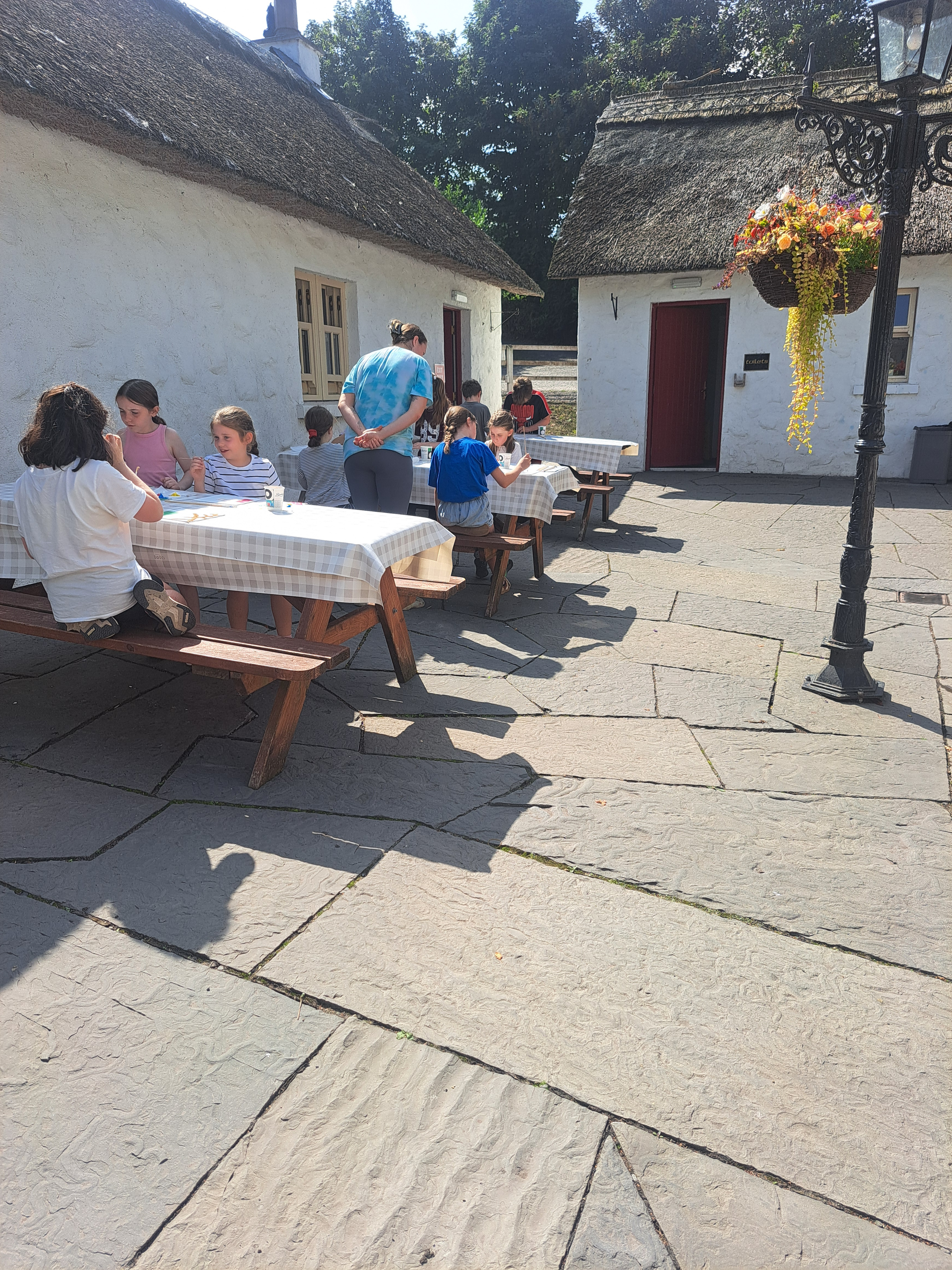
Fig 5. Arts and crafts in Loughcrew
Looking back, what connects my two projects, teaching in Ghana and running a children’s workshop at home, is not geography or resources, but people. Whether in a crowded classroom in Abetifi or a yoga circle in Loughcrew, I learned that leadership is about creating space for others to learn, grow, and feel seen. It isn’t about having all the answers, but about having the willingness to listen, to adapt, and to show up wholeheartedly.
Both experiences have strengthened my belief in the transformative power of education, not only as a tool for knowledge, but as a bridge for empathy, creativity, and community. I have seen how curiosity can light up a room, how stories can connect generations, and how small moments can leave lasting impressions.
My LiA has not ended with these projects. The lessons I’ve carried from Ghana back to Ireland will continue to shape how I approach leadership, service, and life. Most of all, it has taught me that leadership isn’t about changing the world alone, it’s about planting seeds that allow others to flourish, wherever they may be.

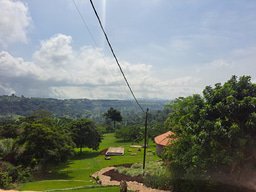
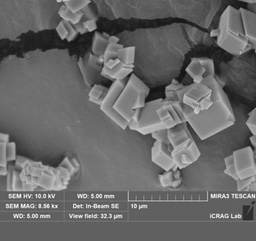
Please sign in
If you are a registered user on Laidlaw Scholars Network, please sign in